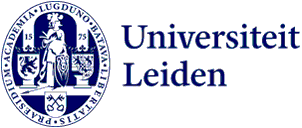
eLaw taught at Mykolas Romeris University
It is said that robots replace human interaction, but not always. This spring, the robots were the reason why the eLaw Center for Law and Digital Technologies at Leiden University in the Netherlands and Mykolas Romeris University (MRU) Law School in Lithuania got together.

Assistant Professor Eduard Fosch-Villaronga from eLaw - Center for Law and Digital Technologies, taught an insightful course on Robotic Governance at the MRU's LegalTech LLM programme. This LLM programme is part of MRU’s Law School and combines legal knowledge and technologies designed for practising lawyers and other professionals interested in law and technologies. The programme includes practical learning methods: hackathons, meetups, gamification, LegalTech startup idea development, and additional experiential learning with teaching staff from Lithuania, the Netherlands, and Spain.
Here is where eLaw's leading expertise in law and digital technologies comes in. Students learned about the latest developments in robot and artificial intelligence technologies in the course 'Robotic Governance' which was taught in April 2021.
Robotic Governance
During the course, we focused on the benefits but also the particular challenges revolving around the deployment of AI. We highlighted problems including the opacity and the lack of explainability of these algorithmic systems following the European General Data Protection Regulation. We also stressed the potential discriminatory scenarios and exacerbation of existing biases with respect to gender, race, and sexual orientation AI may have on specific populations.
We talked about how the cyber-physical nature of these systems blurs well-established concepts such as safety and, in this respect, we also wondered how we could articulate responsibility in highly automated environments. We explored legal solutions and learned how to assess the risk posed by these technologies using impact assessments (robot impact assessment). We closed the course reflecting on the long-term consequences of AI, the added value this brings to society, and how the law should balance innovation and user rights protection in the context of AI.

Student impressions
The professor did a great job teaching us the law(s) of robotics while raising some very relevant questions in relation to the future of legal developments and technological challenges of robots. I enjoyed the format of the lectures/seminars. We had the opportunity and the professor encouraged us to participate in an active discussion. The feedback on our opinions was clear enough and well placed in the broader context. The lectures were well organized and prepared in advance, so each student had the opportunity to express his/her opinion.
Whether we like it or not, robots are here and will surely change how we will act and behave in the future. As lawyers, we are responsible to find the right balance in supporting technological progress while not forgetting the fundamental rights of people.
Marcel Hajd - LLM student Mykolas Romeris University, Lithuania
I really enjoyed the course ‘Robotic Governance’. I think it was well planned and laid out, easy for me to follow. Overall I liked that the material consisted not only of scientific articles but also of podcasts, films, and ‘Youtube’ videos. The material of the syllabus allowed me to better understand the essence of the course. The professor gave the lectures enthusiastically, always in a good mood, he was very considerate and nice. We had very interesting discussions during the lectures!
Rimantė Valiulienė - LLM student Mykolas Romeris University, Lithuania
Mykolas Romeris University
Mykolas Romeris University is an international university located with campuses in Vilnius and Kaunas, Lithuania. The modern, creative and entrepreneurial academic community has raised MRU to make it the leading university in social sciences and interdisciplinary research in Lithuania.
MRU is also an alma mater of Dr Eduard Fosch-Villaronga. MRU was part of the highly international programme Erasmus Mundus Joint Doctorate (EMJD) in Law, Science, and Technology (LAST-JD) that Eduard pursued. Eduard lived in the old town (senamiestis) in Vilnius during the second year of his PhD in 2014.


